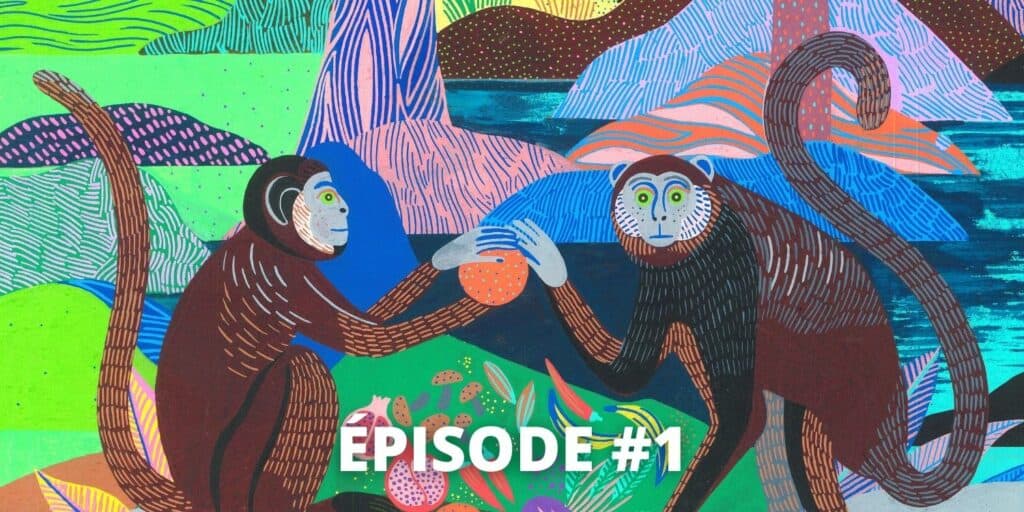Listen to the podcast
Subscribe to (R)évolutions Alimentaires!
Follow us on
Fermentation and its benefits
Easily digestible and nutritious, fermented foods are excellent for health. They are also a very good preservation technique, both ecological, economical, original and flavorful. Everyone today is passionate about fermentation, including Michelin-starred chefs.
We can only welcome this enthusiasm, as these foods are fascinating. The only method of preservation, along with drying, until the 19th century, fermentation outperforms modern techniques such as sterilization and freezing in every way.
While sterilization kills all microorganisms — mainly yeasts and bacteria — present in the air and on the surface of foods, fermentation actually makes them our allies. Allies not only helpful, but capable of preserving foods while improving them.
And if some think that the rediscovery of fermented foods is merely a fad, they are mistaken. A universal technique practiced for millennia cannot be a fad, especially when its value is confirmed by science.
This podcast is an introduction to the essentials: the principles of fermentation, the different types of fermentation, the easiest recipes, basic methods, equipment, preservation, etc.
Guests
Marie-Claire Frédéric : Marie-Claire is a food historian and a specialist in fermented foods. She has written 7 books on the subject, and founded the SURI restaurant in Paris, which offers indulgent cuisine where every dish involves fermentation.
Hélène Schernberg : An agricultural engineer turned economist, author of numerous cookbooks with Louise, Hélène likes to connect theory – science and nutrition – to practice – cooking. She is entirely devoted to her baby, her father, and to the various strains of kefir, kombucha, or sourdough starter that occupy the family refrigerator,
My questions
- C’est quoi, la fermentation, en quelques mots ? Y a t il plusieurs fermentations?
- Quels sont les principes de la fermentation ?
- Comment êtes vous arrivées à ce sujet ?
- Quels seraient vos conseils pour nos auditeurs pour s’y mettre facilement et en douceur ?
- Quels sont les bénéfices de la fermentation?
- Quels sont vos sources d’inspirations (livres, cuisines du monde, cuisiniers, etc.)
- Quelle recette conseilleriez vous à nos auditeurs pour commencer ? Et pour les plus aguerris ?
- Quelle est votre recette préférée ?
Resources to learn more
- Le blog d’Hélène : https://green-me-up.com
- Le blog de Marie-Claire : https://nicrunicuit.com
Some books they have written on the subject:
- https://boutique.terrevivante.org/librairie/livres/4273/facile-et-bio/458-je-decouvre-la-fermentation.htm
- https://nicrunicuit.com/actu/boissons-fermentees-naturelles-livre-librairie/https://www.alma-editeur.fr/ni_cru_ni_cuit.html
- https://boutique.terrevivante.org/librairie/livres/4477/sans-collection/458-petit-manuel-de-cuisine-punk.htm
The (R)évolutions Alimentaires podcasts are presented by Louise Browaeys
Agricultural engineer (AgroParisTech) with a specialization in nutrition, Louise has worked for ten years in the agriculture, food, and ecology sectors.
She is the author or co-author of several books on food, ecology, permaculture, and corporate social responsibility. Notably: “La part de la terre : l’agriculture comme art” (Delachaux et Niestlé, 2014), “Permaculture au quotidien” (Terre Vivante, 2018), “Le régime planétaire” (La Plage, 2020).



